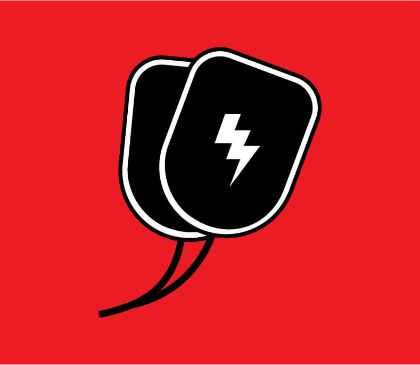3 Facts About Sudden Cardiac Arrest
- Jan 8, 2018

SCA is the leading cause of death in the United States
Did you know that more than 356,000 adults die each year after suffering an out-of-hospital cardiac arrest (OHCA)?
Sadly, about 90% of the people who experience an OHCA will die as a result. While these numbers are nothing short of staggering, AEDs (automated external defibrillators) and CPR save lives. Prompt use of an AED and CPR, especially if administered immediately after cardiac arrest, can double or triple a person’s chance of survival (The American Heart Association).
AEDs automatically identify, diagnose, and respond to life-threatening heart rhythms. The shock delivered by an AED can stop irregular heartbeats (arrhythmia) and allow normal heart rhythms to resume after sudden cardiac arrest (SCA). SCA occurs when the heart suddenly and unexpectedly stops beating. If not treated immediately, SCA can quickly lead to death.
Sudden cardiac arrest can result from cardiac causes, external causes, and other medical conditions.
SCA can be caused by ventricular fibrillation, a sudden blow to the chest, electrocution, drowning, drug abuse, cardiomyopathy, and hypothermia. SCA may also be brought on by a congenital heart condition or a heart attack. Cardiac arrest can be reversible if it’s treated in the first few minutes with CPR and by using a portable AED on the victim.
Although sudden cardiac arrest can happen to people who have no prior known heart conditions, life-threatening arrhythmia usually develops in a person with a pre-existing — and possibly undiagnosed — heart condition such as coronary artery disease, enlarged heart, heart attack, or congenital heart disease.
SCA in adults occurs most often at home (69.5%), in public settings (18.8%), or in nursing homes (11.7%)
If you have an AED and know how to perform CPR, the life you save may be someone that you love. In fact, it’s pretty likely. Did you know that four out of five cardiac arrests occur at home? Not only that, but many victims of sudden cardiac arrest appear healthy and may not have any known heart diseases or risk factors.
Let’s make a dent in the statistics! Check out the Philips HeartStart OnSite AED for your home and remember, Cardio Partners offers nationwide CPR training. Contact us to learn more.
DISCLAIMER: Information and resources found on the cardiopartners.com and aed.com websites/blogs is intended to educate, inform, and motivate readers to make their health and wellness decisions after consulting with their healthcare provider. The authors are not healthcare providers. NO information on this site should be used to diagnose, treat, prevent, or cure any disease or condition.






 CALL US:
CALL US: